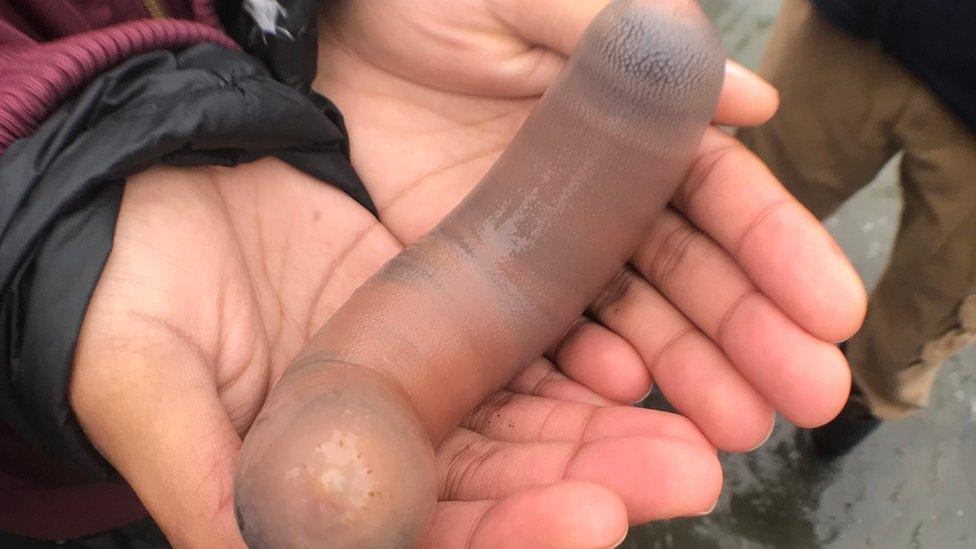'Penis fish' wash up on a beach in California
- Published

A beachgoer holds a fat innkeeper worm in California
Thousands of creatures resembling penises have washed up on a beach in California.
The pulsating creatures are fat innkeeper worms, or Urechis caupo.
Although they are a type of worm, they are widely referred to as the "penis fish".
The worms bury themselves deep beneath the sand, but recent storms have uprooted them and Drakes Beach, about 50 miles north of San Francisco, has been covered in the creatures.
Urechis unicinctus known as penis fish, innkeeper worm or spoon worm, seen here at a market in South Korea
"Yes, the physical design of the fat innkeeper worm has some explaining to do. But the fat innkeeper is perfectly shaped for a life spent underground," wrote biologist Ivan Parr.
There is fossil evidence of the creatures dating back 300 million years and some live for up to 25 years, he added.
Allow Instagram content?
This article contains content provided by Instagram. We ask for your permission before anything is loaded, as they may be using cookies and other technologies. You may want to read Meta’s Instagram cookie policy, external and privacy policy, external before accepting. To view this content choose ‘accept and continue’.
Within a beach, the creatures will dig a U-shaped burrows extending several feet long.
Their more polite nickname - innkeeper worm - comes from this subterranean lifestyle and the tunnels they create for other animals as they burrow underground.

Several other species, including fish, sharks, and otters feast on the penis fish.
And it's considered food for humans as well. Urechis unicinctus, the species found in East Asia, is a delicacy in countries including South Korea.
Allow Instagram content?
This article contains content provided by Instagram. We ask for your permission before anything is loaded, as they may be using cookies and other technologies. You may want to read Meta’s Instagram cookie policy, external and privacy policy, external before accepting. To view this content choose ‘accept and continue’.
You might also like...
How do you farm a geoduck? (video by David Botti)
Related topics
- Published20 October 2016
- Published18 August 2018
- Published3 September 2018